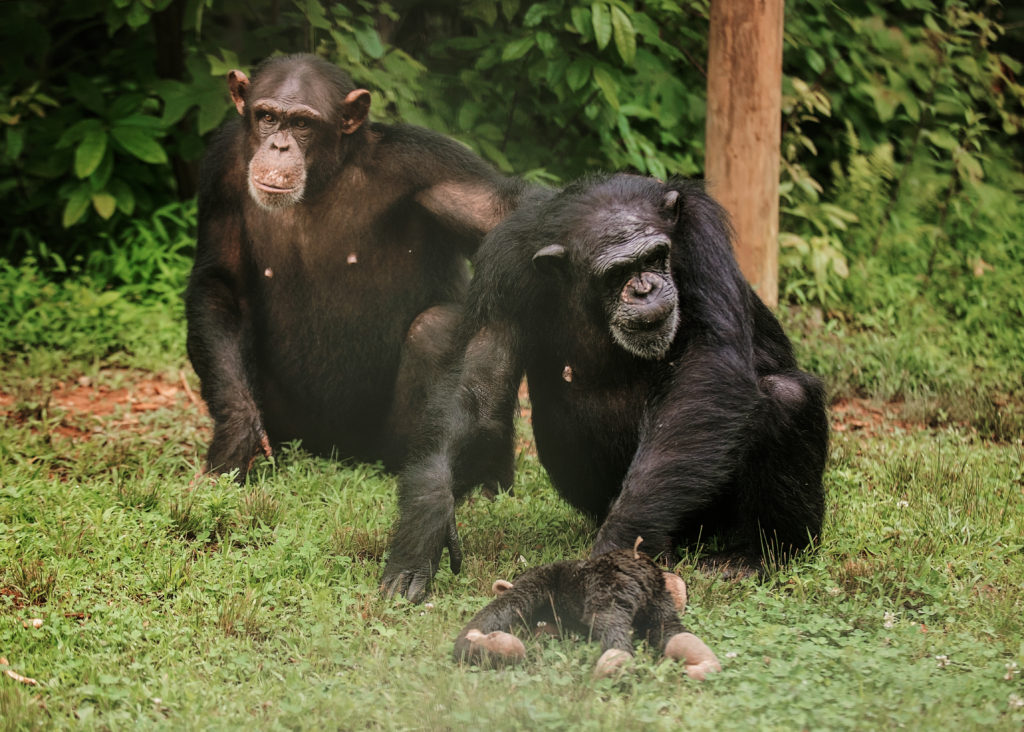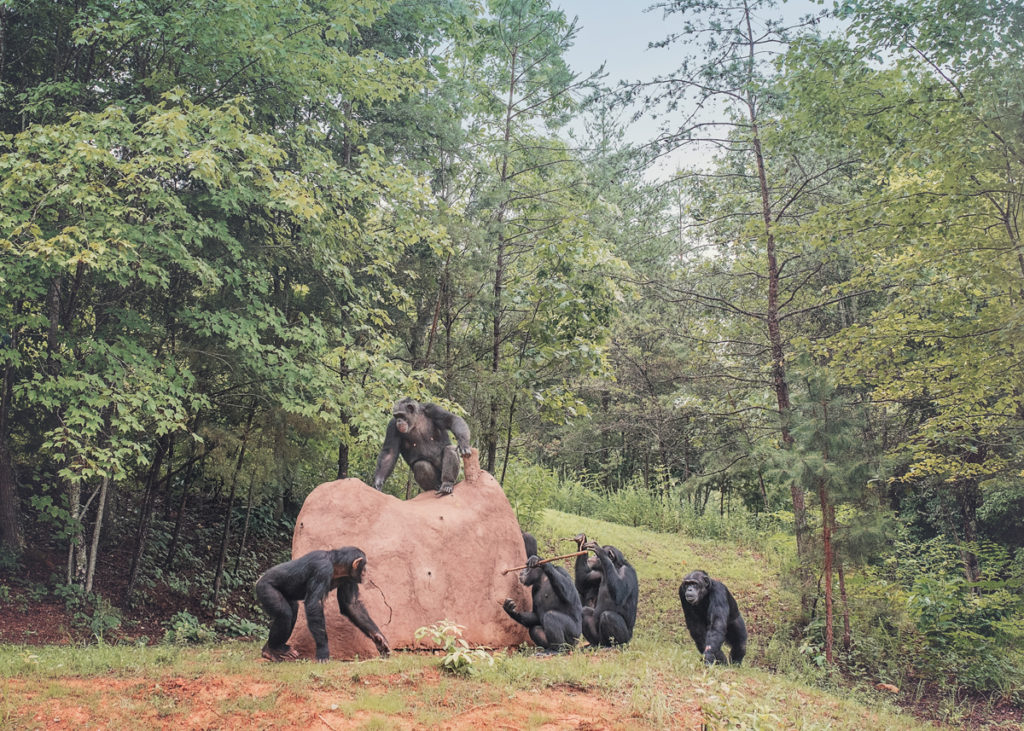
World Chimpanzee Day 2019 – How Will You Celebrate?

by Project Chimps Communications Intern Josie Sepel
At the age of 26, a young researcher named Jane Goodall entered what is now the Gombe Stream National Park in Tanzania. She embarked on July 14, 1960, hoping to learn all that she could about wild chimpanzees, a species which, at the time, was still shrouded in mystery.
According to Dr. Goodall, “…in 1960 it was still commonly believed that there was a difference of kind, not just degree, separating humans and the rest of the animal kingdom, that there was a sharp line between us and them.”[1]
The Jane Goodall Institute launched World Chimpanzee Day in 2018 to help raise awareness about chimpanzees and the need for chimp conservation.
Apes like us
As Dr. Goodall has explained, “Chimpanzees were used in medical research because of similarities in genetic composition, structure of the blood, functioning of the immune system and structure of the brain – and it was acceptable to place them in solitary confinement, in five-by-five, seven-foot-high laboratory cages, because (it was asserted) they, unlike us, did not have personalities, minds capable of rational thought or emotions.”1 Thanks to her efforts and awareness programs like World Chimpanzee Day, we now know better.
We now know that chimpanzees have individual personalities and are extremely capable of rational thought and emotions. Like us, they are very social and communicate with specific vocalizations, facial expressions and body language. They have a unique culture and are able to make and use tools. They are amazing, intelligent, sentient beings who deserve our respect, our love, and our support.

A threatening world
Chimpanzees are an incredibly endangered species. Due to habitat loss, disease, illegal hunting, and wildlife trafficking, only 350,000 remain in the wild.2 And the threats don’t end there. Although the United States finally ended invasive research and testing on chimpanzees in 2015 (the last country in the developed world to do so), many chimps still remain in captivity – kept as illegal pets and exploited for entertainment.
Caring for former research chimpanzees
Here at Project Chimps, our mission is to provide a forever home for chimpanzees retired from medical research, a population which, due to being born and raised in captivity, would not survive living in the wild. But we also support any efforts made to ensure the wellbeing of all chimpanzees, both those in captivity and those in the wild, and to eliminate any and all threats preventing this amazing species from living the lives they were meant to live.

How will you celebrate chimps?
This World Chimpanzee Day, we invite you to join us. Share your favorite chimpanzee stories from our Facebook, Instagram or Twitter feeds and YouTube channel. You can also learn more at WorldChimpanzeeDay.org
Want to make a long-term difference? Here are some actions you can take and small life-changes you can make that will really help our planet’s chimpanzees:
- Avoid food products that are made with palm oil. The growing and harvesting of palm oil has destroyed many of the rainforests in Indonesia and Malaysia, endangering species of orangutans, tigers, elephants and more. Now, to keep up with growing demands, the palm oil industry is encroaching on a number African countries, posing a large threat to the animals that live there – animals like chimpanzees. So check your labels. Pass on foods and other packaged products that contain palm oil. Help chimpanzees keep their home.
- Recycle your electronics. Coltan, a mineral used in many electronic devices, is heavily mined in the Democratic Republic of Congo, a country in Central Africa that is home to a large percentage of the earth’s remaining chimpanzees. Every time a new cell phone is made, forests are damaged and the species that live in and depend on them are hurt. By recycling our electronics, we can greatly minimize this negative impact. If you can’t find a recycling program near you, head to your nearest Best Buy or Staples, both of which have established electronic recycling programs.
- Think before you buy. If you are purchasing something that is made of wood, make sure that the wood used was logged sustainably. Look for products that are FSC-certified to ensure that the materials were responsibly harvested.
- Consider donating to a reputable organization dedicated to keeping chimps safe. If you want to help the chimps in our care here at Project Chimps, you can make a recurring donation, sponsor a chimp, or purchasing an item from our Amazon Wish List!
[1] Goodall, J. (2010). Through a Window: My Thirty Years with the Chimpanzees of Gombe. New York, NY: Mariner Books. p.xi
[2] Source: https://www.worldchimpanzeeday.org
